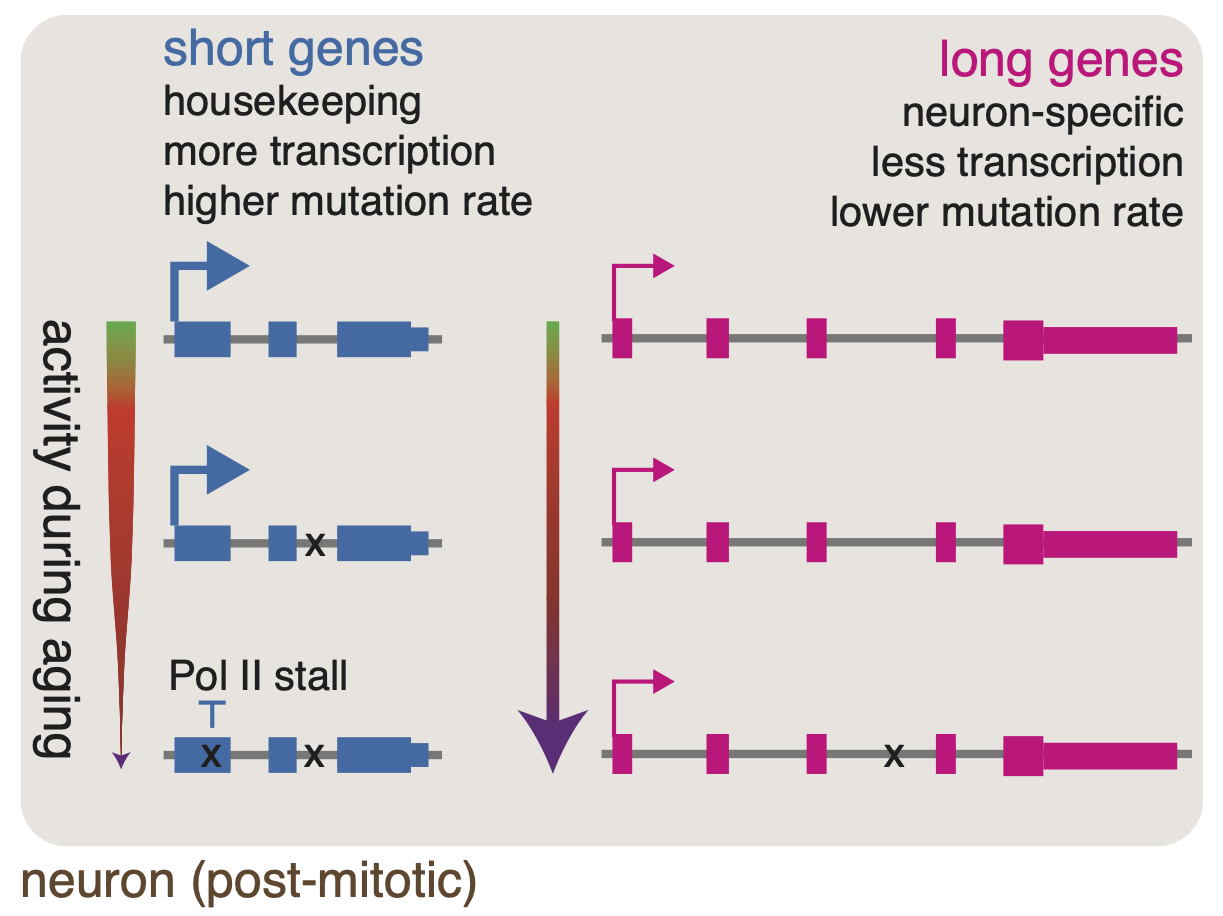Single-cell transcriptomic and genomic changes in the aging human brain
Published in Nature, 2025
Over time cells in the brain and body accumulate damage that contributes to the aging process. In human brain, the prefrontal cortex undergoes age-related changes that can impact cognitive functioning later in life. Using single-nucleus RNA sequencing (snRNA-seq), single-cell whole-genome sequencing (scWGS), and spatial transcriptomics, we identified gene expression and genomic changes in the human prefrontal cortex across life span, from infancy to centenarian. snRNA-seq identified infant-specific cell clusters enriched for the expression of neurodevelopmental genes, as well as an age-associated common downregulation of cell-essential homeostatic genes that function in ribosomes, transport, and metabolism across cell types. Conversely, expression of neuron-specific genes generally remains stable throughout life. These findings were validated with spatial transcriptomics. scWGS identified two age-associated mutational signatures that correlated with gene transcription and gene repression, respectively, and revealed gene-length and expression-level dependent somatic mutation rates in neurons that correlate with the transcriptomic landscape of the aged human brain. These findings elucidate critical aspects of human brain development and aging, shedding light on transcriptomic and genomic dynamics.

Recommended citation: Jeffries & Yu et al. "Single-cell transcriptomic and genomic changes in the aging human brain." Nature (2025)
Download Paper
